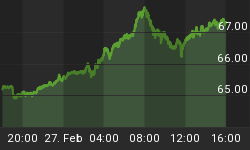This month Congress will consider whether to renew the charter of the Export-Import Bank (Ex-Im Bank). Ex-Im Bank is a New Deal-era federal program that uses taxpayer funds to subsidize the exports of American businesses. Foreign businesses, including state-owned corporations, also benefit from Ex-Im Bank. One country that has benefited from $1.5 billion of Ex-Im Bank loans is Russia. Venezuela, Pakistan, and China have also benefited from Ex-Im Bank loans.
With Ex-Im Bank's track record of supporting countries that supposedly represent a threat to the US, one might expect neoconservatives, hawkish liberals, and other supporters of foreign intervention to be leading the effort to kill Ex-Im Bank. Yet, in an act of hypocrisy remarkable even by DC standards, many hawkish politicians, journalists, and foreign policy experts oppose ending Ex-Im Bank.
This seeming contradiction may be explained by the fact that Ex-Im Bank's primary beneficiaries include some of America's biggest and most politically powerful corporations. Many of Ex-Im Bank's beneficiaries are also part of the industrial half of the military-industrial complex. These corporations are also major funders of think tanks and publications promoting an interventionist foreign policy.
Ex-Im Bank apologists claim that the bank primarily benefits small business. A look at the facts tells a different story. For example, in fiscal year 2014, 70 percent of the loans guaranteed by Ex-Im Bank's largest program went to Caterpillar, which is hardly a small business.
Boeing, which is also no one's idea of a small business, is the leading recipient of Ex-Im Bank aid. In fiscal year 2014 alone, Ex-Im Bank devoted 40 percent of its budget -- $8.1 billion -- to projects aiding Boeing. No wonder Ex-Im Bank is often called "Boeing's bank."
Taking money from working Americans, small businesses, and entrepreneurs to subsidize the exports of large corporations is the most indefensible form of redistribution. Yet many who criticize welfare for the poor on moral and constitutional grounds do not raise any objections to welfare for the rich.
Ex-Im Bank's supporters claim that ending Ex-Im Bank would deprive Americans of all the jobs and economic growth created by the recipients of Ex-Im Bank aid. This claim is a version of the economic fallacy of that which is not seen. The products exported and the people employed by businesses benefiting from Ex-Im Bank are visible to all. But what is not seen are the products that would have been manufactured, the businesses that would have been started, and the jobs that would have been created had the funds given to Ex-Im Bank been left in the hands of consumers.
Another flawed justification for Ex-Im Bank is that it funds projects that could not attract private sector funding. This is true, but it is actually an argument for shutting down Ex-Im Bank. By funding projects that cannot obtain funding from private investors, Ex-Im Bank causes an inefficient allocation of scarce resources. These inefficiencies distort the market and reduce the average American's standard of living.
Some Ex-Im Bank supporters claim that Ex-Im Bank promotes free trade. Like all other defenses of Ex-Im Bank, this claim is rooted in economic fallacy. True free trade involves the peaceful, voluntary exchange of goods across borders -- not forcing taxpayers to subsidize the exports of politically powerful companies.
Ex-Im Bank distorts the market and reduces the average American's standard of living in order to increase the power of government and enrich politically powerful corporations. Congress should resist pressure from the crony capitalist lobby and allow Ex-Im Bank's charter to expire at the end of the month. Shutting down Ex-Im Bank would improve our economy and benefit most Americans. It is time to kick Boeing and all other corporate welfare queens off the dole.















